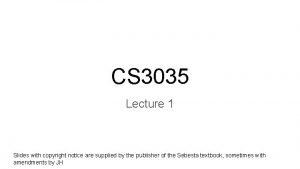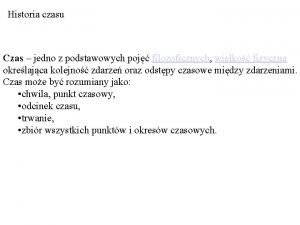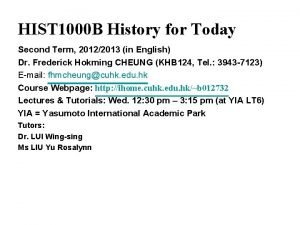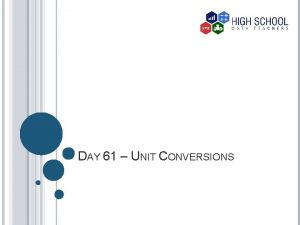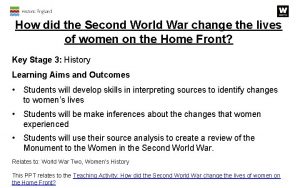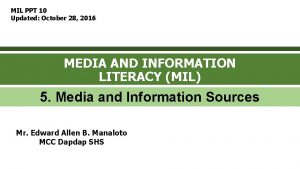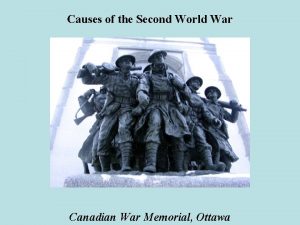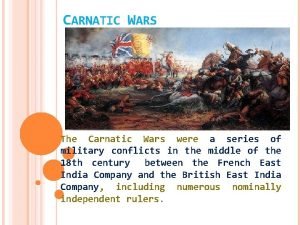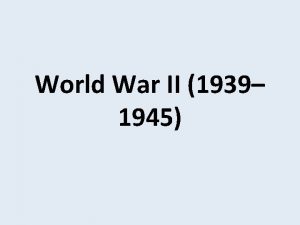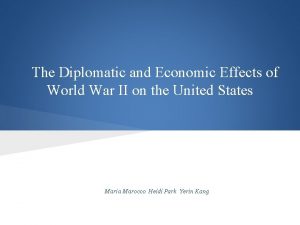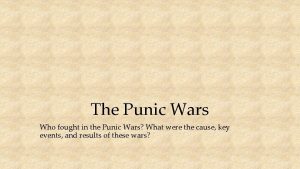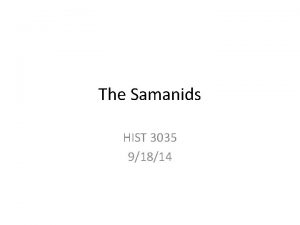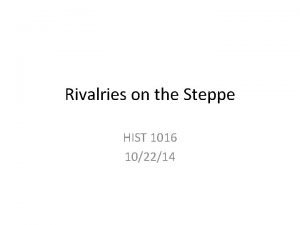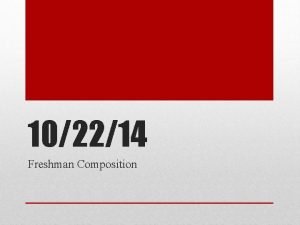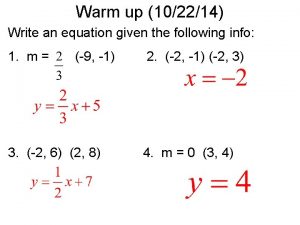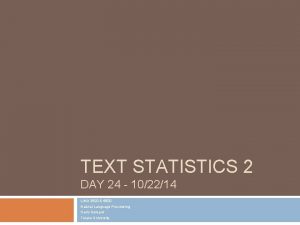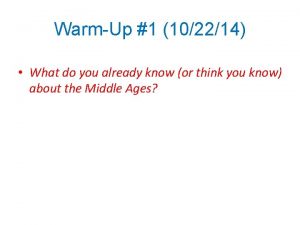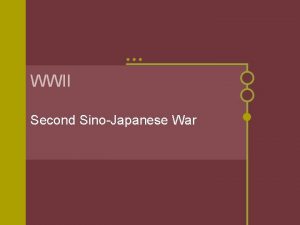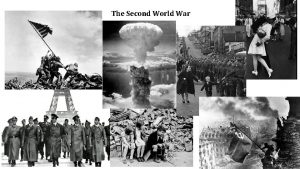The Second AngloAfghan War HIST 3035 102214 Dost





















- Slides: 21

The Second Anglo-Afghan War HIST 3035 10/22/14

Dost Mohammad Khan (r. 18261839; 18451863)

George Eden, 1 st Earl of Auckland

Battle of Ghazni, 1839

General William Elphinstone

William Mc. Naughten and Akbar Khan

Remnants of an Army

Bala Hissar

Sepoys • Revolts against British rule Were regular in early 19 th century • Biggest concern was loyalty of sepoys. • Sepoys – Indian soldiers working for British • Sepoys outnumbered British troops 200, 000 to 38, 000 in 1857.

Sepoy Mutiny/Revolt (1857) • Growing resentment over ethnic and regional competition, requirements to fight overseas, and new technologies. • Enfield rifle: soldiers must tear cartridge open with teeth, but bullets are (rumored to be) greased with animal fat. • Muslims worried about pig fat, Hindus worried about beef fat. • Neither is true but rumors spread quickly. • Reflects concern over Britain’s disruption of society. • So do rumors of Sepoy violence.

Sepoy Mutiny • Support for last Mughal Emperor (Bahadur Shah Zafar) and Maratha Emperor (Nana Sahib) • Revolt put down with support of British army • Leads to questions about EIC rule

Violence of Sepoy Mutiny • Sieges and ambushes of British military stations. • Often home of civilian populations as well. • Women and children killed. • British response includes mass executions (blowing from the guns). • Unofficial lynchings.

Revolt, Mutiny, or… • Today the Sepoy Mutiny is remembered in India as India’s First War of Independence. • Why does the name matter?

Government of India Act 1858 • Because British government had to save EIC… • The EIC is dissolved and India formally becomes a part of the British Empire. • New centralized government, last traces of Mughal rule eliminated. • Governor-General in Delhi acts as Viceroy • Queen Victoria guarantees equal rights of all Indians • 1877: Empress of India

(Some of) Dost Muhammad’s Sons Sher Ali Khan (r. 1863 -1879); Muhammad Afzal Khan (r. 1865 -1867); Muhammad Azam Khan (r. 1867 -1868)

Sher Ali, Charles Chamberlain, and Sir Richard F. Pollock (1869); Constantine von Kaufman

Second Anglo-Afghan War (1878 -1880)

Treaty of Gandamak Jenkyns, Major Cavagnari, Amir Yaqub Khan, General Daoud Shah, and Habibullah Mustafi

Ayyub Khan and Maiwand

Abdur Rahman Khan – “The Iron Amir” (r. 18801901)

Durrand Line
 Cs 3035
Cs 3035 Hist poj
Hist poj François quesnay
François quesnay Toni urlić
Toni urlić Hist 1000
Hist 1000 Surgical suffixes examples
Surgical suffixes examples 186 282 miles per second into meters per second
186 282 miles per second into meters per second Second world war
Second world war School uniform of sshs prior to the second world war
School uniform of sshs prior to the second world war Second world war
Second world war Why were the carnatic wars fought
Why were the carnatic wars fought Soviet deaths ww2
Soviet deaths ww2 Effects of 2nd world war
Effects of 2nd world war Punic wars who fought
Punic wars who fought Monitorowanie dost�pno�ci serwis�w internetowych
Monitorowanie dost�pno�ci serwis�w internetowych Monitorowanie dost�pno�ci strony www
Monitorowanie dost�pno�ci strony www How old is hamlet
How old is hamlet Monitorowanie dost�pno�ci serwis�w
Monitorowanie dost�pno�ci serwis�w Dostępnościomierz
Dostępnościomierz Baiat aqabah
Baiat aqabah Dost diye bildiklerimiz
Dost diye bildiklerimiz Hast thou love life
Hast thou love life
